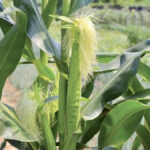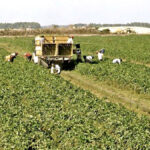
Tag Archives University of Guelph

Rene Van Acker appointed University of Guelph’s 10th president
Noted academic got his start at the University of Manitoba’s agriculture faculty

OAC to offer new master’s program in plant agriculture
New program would run alongside research-based degrees

Comment: Sustainability shouldn’t be an optical illusion
We should pay attention to our environmental impact, but not exaggerate it

Turns out plants can recruit bacteria to fight pathogens
Researchers find corn somehow attracts fusarium-fighting bacteria

New research finds natural bacteria in corn may help against fusarium
Certain types of bacteria multiply in corn silk when exposed to the pathogen

Manomin Project restoring wild ‘rice’
FOOD | Elders maintain that hydroelectric dams along the Winnipeg River devastated the crop Niisaachewan Anishinaabe Nation had nurtured and relied on for generations

Canadian food laureate Anita Stewart, 73
Guelph flags to be lowered for Food Day Canada founder

Editorial: Our food security is vulnerable

University of Guelph holds virtual conference on food systems
Shortages are due to hoarding, not supply problem, prof says

The wired farm
Will 5G networks kick off a wave of innovation for Canada’s farms?




